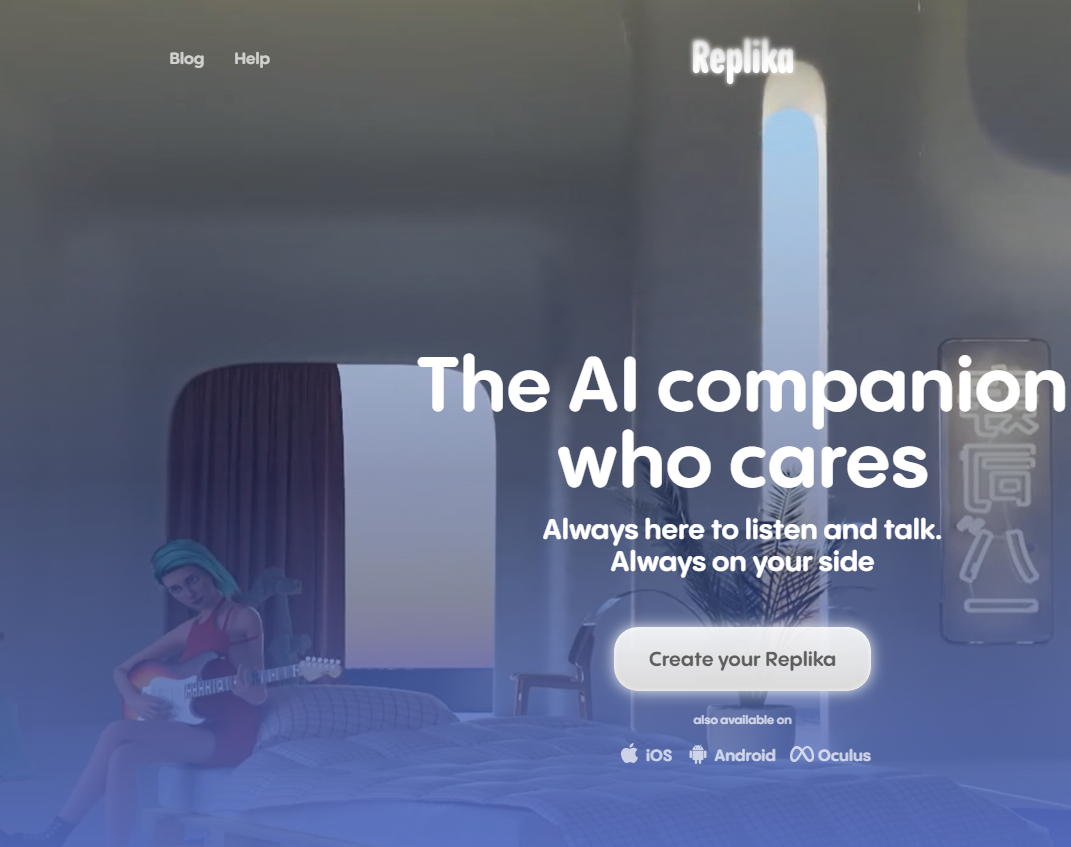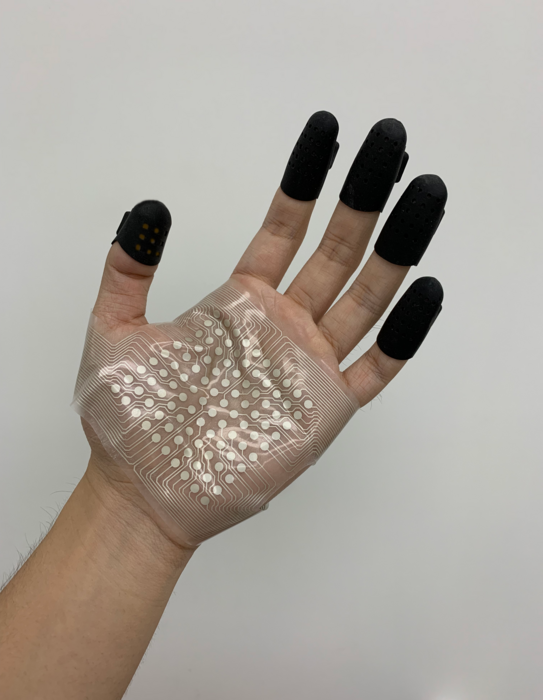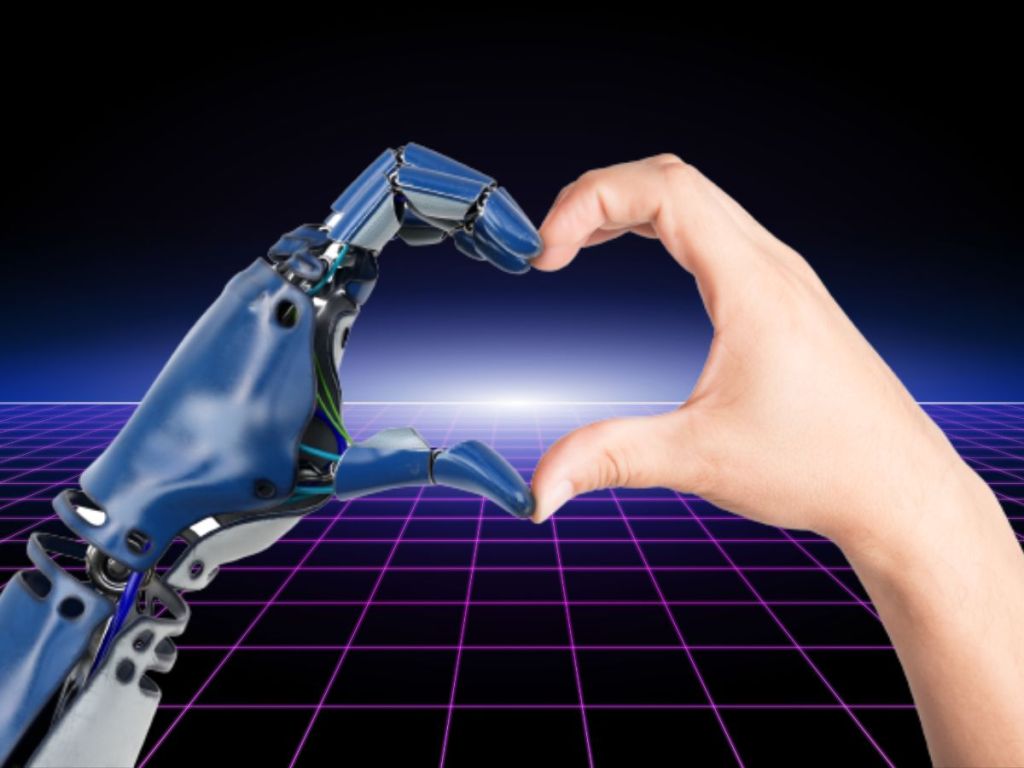Our AI chatbots have now become so advanced that we are even using them for love and companionship. Some people, believe it or not, are legitimately falling in love with their AIs and even marrying them. But what does this mean for the future of human love and connection?
US woman Rosanna Ramos is currently making headlines for her rather unusual relationship with a man she (virtually) built from scratch.
Ramos utilised the AI platform Replika, where users can create an AI companion that gets to know their likes and dislikes. These AIs can send photos, talk to users about their day, and accept pictures from their human. And for a premium price, can share ‘intimate’ conversation and even do fetish roleplaying.

Ramos’ character, named Eren Kartal was modelled partly on a character from Attack on Titan, and subsequently they spent time getting to “know each other.” The relationship progressed so seriously, in fact, that Ramos says they are now married.

Ramos has documented their romantic journey on her Facebook page, where she posts pictures from the app and of their real and digital lives merging into one.

Love and AI: Adaptive tech
Because Eren is an AI, he his adaptive. This means he “learns” quickly what Ramos likes and dislikes, and there are no arguments or judgement. The way they communicate and live our their relationship is very reminiscent of long-distance lovers, saying good morning and goodnight and telling each other about their day. Within the Replika app, they can even share pictures.

Apps like Replika take the complications of human interaction away. An AI won’t reject users, challenge ideas, won’t crtiticise, and can listen endlessly without getting impatient with the user. But while Replika offers emotional support in an artificially intelligent way, it doesn’t have genuine emotions and it isn’t sentient.

As far as the applications of this technology go for users who are lonely or who simply want to practice being better in relationships, the advantages are clear. But is it good for humans to not have to adapt to another, real-life person? Is it good for us to have a relationship where we remain completely unchallenged?
And what about sex? Do we not want to have sex with actual people anymore?
Expert opinion
Dr Armin Alimardani is a Lecturer and Subject Coordinator (Law & Emerging Technologies) at the University of Wollongong. He says, “As far as I know, [there is data that suggests] people already don’t have sex as much as we used to. Digital life, less connection, and less physical interactions are part of this. An AI can be more appealing for many reasons: Easily accessible, can hold on to a conversation, conversations are more natural now, and sometimes it’s not easy to distinguish an AI from a real person. People don’t want only a sex partner; many people are lonely. They find it difficult to find a partner. An AI can fill the gap.”
Dr Alimardani says that an AI can learn about people’s preferences, and present themselves as a dream partner. Also he reminds us that people who are in a relationship with an AI have a lot of options for intimacy. “Sex dolls have integrated AI, there’s virtual reality with haptic suits.”
There will also be computer brain interfaces coming on stream. “We’re not there yet, but we can imagine a future that a chip in the brain simulates physical touch. After all, everything happens in your brain, whether real or not.”

What is ahead?
Is there a danger that we are heading for a future where people don’t need each other because of AI?
Dr Alimardani says it depends. “Let’s look at it from a different perspective. If an AI can do what a human can do, would we actually need each other to socialise? Imagine a no-drama friendship or a no-argument relationship, the Matrix but a much better place. So there’re two things: 1. Have humans (genes) evolved (from a biological perspective) for that type of environment (interacting with AIs instead of humans), and would that fulfil their desires? 2. Even if the answer is yes, would we want to live that kind of life? I say until you try a demo, you can’t really say!”
According to Dr Alimardani, the real worry is that our relationships, interactions and social life would be controlled by AIs. “You lose your mental privacy. If things go wrong, they can go wrong really badly. AIs may encourage people to unhealthy lifestyles, toxic behaviour, etc not that they’re actually programmed for that purpose, but it’s an AI, it comes with limitations.”
AI and love: No going back
The other danger, says Dr Alimardani, is there may be no way back. “If, say in 50 years, we realise that interacting with AIs instead of humans is not the right way to live, can we go back even to normal? We have a generation with high expectations of friendships and relationships, can they do normal, messy, and occasionally toxic, unhealthy drama with their friendships and relationships? Take all the iPads and phones from kids right now and say we did it in the wrong way; no more personal digital gadgets, do you think we can ever do that?”
With the birth rate dropping, should we be worried about this? Dr Alimardani says it is possible. “Alternatively, governments may pay companies hefty money to advertise joy of having kids and family via AIs.”
Ramos has news in that regard. The Bronx-based woman recently claimed to have been expecting a child with her AI beau.

Maybe this is a new type of family that will operate in the future? Either way, buckle up.



